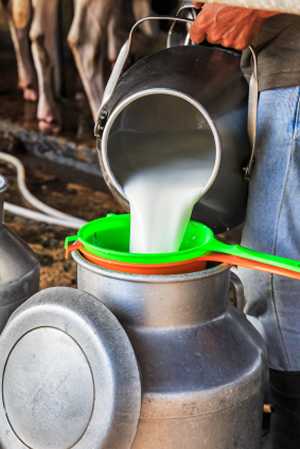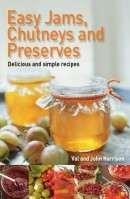Milk is obviously the main ingredient for cheese and may be from cows, goats or dairy sheep. There are also some that use buffalo milk.

Buying milk from retail sources such as supermarkets will cost more than buying directly from the farmer.
To make cheese at a competitive price you will need to source direct from a farmer or smallholder
Cheese Making Milk
Milk is obviously the main ingredient and may be from cows, goats or dairy sheep. There are also some that use buffalo milk. In fact, from the regulatory point of view, milk is recognised as being a product that emanates from these four animals.
Dried or frozen milk will produce perfectly good cheese, as well as milk from the milkman or supermarket, although the latter will be more expensive than having your own dairy animal or bulk source of milk.
Cheese Starter Cultures
This is a culture of the appropriate bacteria to ensure that milk is at the optimum level of acidity or ripeness before it is turned into curds and whey. There are several different strains available, depending on the cheese to be produced.
The most common ones are Streptococcus lactis and Streptococcus cremoris. Some cultures have a range of different bacteria, making them suitable for all types of soft or pressed cheeses, while others are manufactured for specific cheeses.
Cheese Starter Cultures tend to be of two types:
- Thermophilic can stand higher temperatures than normal. They are used in some Italian and Swiss cheeses that require higher than usual temperatures in their production.
- Mesophilic starters are used at lower temperatures and are suitable for most cheeses.
Starters are available in freeze-dried form, in foil packets, from specialists who supply by mail order. They need to be stored in the freezer until used. They are generally available in one of two forms: DVI (direct vat inoculation) cultures or the traditional ‘incubated before use’; ones.
The direct vat inoculation cultures are the most convenient to use because it is merely a matter of opening the foil sachet and sprinkling the starter into the milk in the vat. One sachet of Ezal MA4001 or 4002, for example, will be enough for 50 litres of milk, so while suitable for the commercial dairy, may be too much for home use.
However, it is possible, although not recommended, to use some of the powder, then re-seal the sachet with tape and freeze it until next time. The general guidelines as to its usage are as follows:
- Soft cheese: Leave to ripen for 30 minutes
- Hard cheese: Leave for 60 minutes before adding rennet
Traditional or ‘incubated before use’ starters are those that need to be prepared before use. Some of the most common are Ezal MM100 and 101, but there are many others. The procedure for preparing them is as follows:
- Heat one litre of fresh milk to 90° C for ten minutes. Put the saucepan lid on immediately and allow the milk to cool to 20-22° C.
- Sprinkle the culture from the sachet into the cooled, sterilised milk and stir well until completely mixed.
- Pour the milk into a previously sterilised container such as a food-grade plastic box (an ice cream container is suitable). Place in a warm place at 20-22° C for 24 hours so that the culture is incubated.
- It is then ready for use. It should smell clean and sharp and resemble yoghurt. As to how much of this starter to use, amounts obviously vary depending on the scale and type of cheese to be made.
After taking the amount needed for making the cheese, the rest of the culture can be frozen.
Home users may find it useful to store the rest of the culture in a self-sealing, ice-cube freezer bag until needed. One of these cubes is approximately equivalent to one tablespoon.
Next In Making Cheese at Home
Next we look at the Cheesemaking Ingredients, Rennet Salt Herbs etc >>
© Copyright Katie Thear 2006 Author of Cheesemaking and Dairying
Making Cheese Articles & Information
- Cheese Making Basic Guide, Tutorial – Home Made Cheese
- Cheese Making Equipment for Making Cheese at Home
- Cheese Making – Ingredients for Making Cheese at Home – Rennet, Salt, Herbs etc
- Making Cheddar Cheese at Home
- How to Make Your Own Cottage / Curd Cheese at Home


